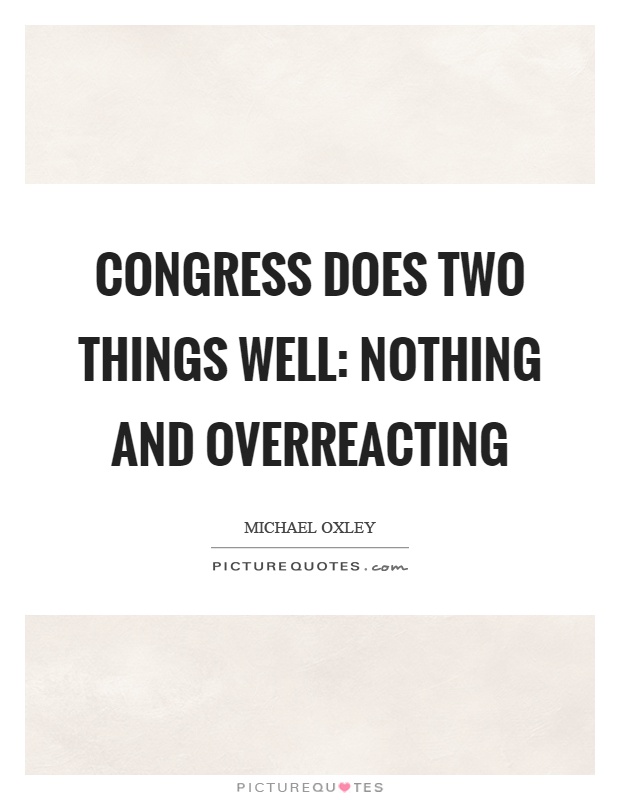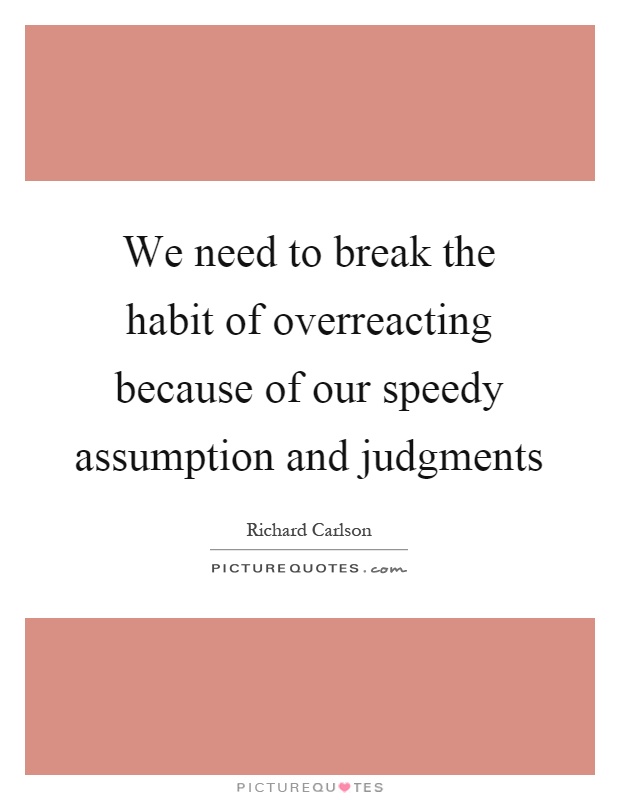
We’ve all felt these emotions. It’s normal to feel angry. It’s natural to react emotionally in certain situations. But when does anger cross the line into overreaction? How can you tell if your emotions are taking control and getting in the way of your relationships, professional goals, or daily life?
Sometimes overreacting is a way of communicating something important — but if your overreaction is consistently causing more harm than good, it’s time to find a new way to communicate and learn how to stop overreacting.
There are two different types of overreactions:
- Reactive overreaction: this is when your initial emotional response is too strong for the event or situation that caused it.
- Compulsive overreaction: this is when you feel like you can’t stop yourself from reacting, even though the reaction may not be appropriate or helpful.
If you’re struggling with one of these 2 things, you might be wondering how to stop overreacting. It can be helpful to start by identifying your triggers. These are the people and situations that cause you to overreact. Once you’ve identified these, consider whether your overreactions are helping or harming the situation at hand.
How To Understand Your Triggers
We have all experienced situations where we’ve overreacted. If you can recognize the causes of your buttons being pushed, you can learn to be more in control of yourself when your triggers are activated.
To figure out what triggers you here are some questions to ask yourself:
- Are you overreacting to something that has happened in the past?
- Do certain people or situations always seem to set you off?
- Do you overreact more than other people do in the same situation?
- What are your physical symptoms when you overreact (e.g. fast heart rate, shortness of breath)?
Once you’ve identified some potential triggers, it’s time to start reflecting on how your overreactions are impacting you and those around you.
How To Take A Step Back And Assess The Situation
Because overreactions are often not as simple as they seem. It’s possible for your overreaction to be about something deeper than the immediate situation. Sometimes overreacting can be related to past trauma or even just a sign that you’re feeling stressed, anxious, or emotionally overwhelmed.
If your overreaction is related to past trauma, it can be a way of expressing what you were unable to express at the time. This can give overreacting an important function, even though it may not seem like that from the outside. For example, overreacting might be your body’s way of telling you something about yourself or your situation is not right.
If your overreaction is related to feeling overwhelmed, it can be helpful to remember that you’re not alone. Many people struggle with overwhelming emotions at some point in their lives. It’s important to understand and accept these feelings rather than trying to fight them or bottle them up.
Here are a few tips to take a step back and assess the situation:
- Stop and take some deep breaths. This will help you calm down and give yourself time to think.
- Talk to someone you trust about what’s going on. It can be helpful to get another perspective, especially if you’re feeling overwhelmed or confused.
- Remind yourself that overreacting is not always rational. Just because you’re feeling a strong emotion doesn’t mean it’s automatically valid or helpful.
- Think about what you would like to happen instead of overreacting. What’s the outcome you’d like to see? How can you get there?
- Ask yourself if overreacting is helpful in any way, or if it’s only making the situation worse.
- Consider how your overreactions are impacting your relationships with others.
- Think about whether you’re able to accomplish your professional goals when you’re overreacting.
- Analyze the physical and emotional consequences of overreacting.
How To Respond Instead Of React
When you feel yourself starting to overreact, take a step back and think about what you’re overreacting to.
Ask yourself: am I overreacting to something that happened in the past? Is there a way for me to respond instead of react right now?
If you find that your overreactions are related to the past, try not to focus on how things could or should have been different. Instead, focus on how you can respond more effectively in the present moment.
If overreacting feels like a habit that’s hard to break, try these tips:
- Remind yourself over and over again that overreacting isn’t helping anyone, including yourself.
- Practice taking deep breaths when you feel an overreaction coming on.
- Identify positive statements you can say to yourself about the situation and/or about yourself.
- Visualize a more helpful response before reacting.
How to Stop Overreacting
Here are a few strategies to help you manage intense emotions.
Do you get mad over little things? Are you in tears over something another person could easily let go of?
Overreacting can be external, like yelling or needlessly blasting the horn in traffic. Or it can look like worrying all night that you said something stupid or wondering why the store clerk was so unfriendly.
Perhaps you recognize that you’re overreacting and want to find strategies for reacting more appropriately. Here are a few tips.
Tips to stop overreacting
In psychology, the act of managing your emotional state is called “emotional regulation.” Emotional regulation strategies can involve reducing negative emotions, increasing positive emotions, or both.
1. Identify your triggers
Do you find yourself overreacting to the same things again and again? Perhaps you have a strong reaction to feeling ignored. Maybe you never felt heard by a parent, and now when your partner doesn’t listen to you, you react in anger or extreme sadness.
Think about what your triggers are and write them down. Identifying them is the first step, so that your feelings are conscious and don’t sneak up on you.
2. Labeling
Emotion labeling is the act of specifically naming your emotions. For example, instead of saying “I’m really upset,” you might say “I feel so embarrassed and disappointed in myself that I failed the test.”
When we’re highly aware of how we feel and can communicate our feelings, our emotions feel less severe. In fact, research shows that labeling decreases activity in the amygdala, the brain region involved in emotions and fear.
3. Opposite action
Opposite action is an emotion regulation strategy often used in dialectical behavior therapy (DBT), a type of therapy that helps you manage difficult emotions.
In “opposite action,” you engage in behaviors that match the opposite emotion of what you’re feeling. For instance, if you’re extremely nervous on your way to take an exam, try to behave as if you’re feeling excited and confident.
This isn’t another way of suppressing your feelings — you still need to label and release your fear. But acting confidently helps you remember that your reactions are changeable, and you have some control over them.
4. Reappraisal
In psychology, emotional reappraisal involves reframing the situation into something more positive — or at least less negative. This strategy can be used to either increase positive emotions or decrease negative emotions.
For instance, let’s say you weren’t invited to a party that many of your friends are attending.
A reappraisal would be thinking that at least now you have the opportunity to save money on buying a new outfit — or that now you don’t have to worry about avoiding that one person who’s always rude to you.
Research shows that people who use reappraisal tend to have a greater sense of well-being and fewer depressive symptoms than those who don’t use the strategy.
5. Self-distancing
Have you ever watched a documentary about a person who went through tremendous hardship? As you watched their story, you probably thought about how brave or strong they were.
But of course, they probably didn’t feel that way while going through it — they likely felt strong emotions, such as fear, sadness, or anger during that time.
In the self-distancing strategy, you look at yourself as though you were watching your situation from another person’s point of view. So rather than being completely immersed in your emotions and situation, view it from an outsider’s perspective.
The self-distancing technique helps you get some distance from your situation and helps you to avoid getting overwhelmed by your negative emotions.
A study from 2021 found that athletes who practiced self-distancing had less emotional reactivity, including aggressive behavior, over time.

6. Temporal distancing
Everything can feel so overwhelming in the present moment. The temporal distancing strategy involves shifting to a different time perspective.
For instance, let’s say you loan your friend your favorite shirt and they accidentally stain it. Rather than reacting in anger, imagine the scenario as if you’re looking back 5 years from now. Perhaps you will even laugh about it by then.
7. Learn to be aware of cognitive distortions. Cognitive distortions are automatic thinking patterns that cause the person to distort reality. For people who have overreactions, it is typically because of negative or highly self-critical judgement that make a person feel negatively about his or herself.[2] Unless a person learns to recognize a cognitive distortion, he or she will continue to react in a way that does not reflect reality. Everything gets blown out of proportion, often leading to over-reaction.
- These are typically formed in childhood. Having an authority figure (such as a parent or teacher) with a high level of perfectionism, or is overly critical, or with unrealistic expectations can easily lead to this.”Don’t believe everything you think!” Becoming more aware of patterns of cognitive distortion allows you to make other choices in how to react. Just because you think something, does not automatically mean you have to accept it as fact. Challenging unhelpful or unscrutinized thoughts can lead to freedom.
8. Understand Common Types of Cognitive Distortions. Everyone has had experience or at least seen others over-react to situations. For some people, these reactions can become a habit or way of seeing the world. These include:[3]
- Over-generalization. For example, a child who had a bad experience with a large dog may forever be nervous around dogs.
- Jumping to conclusions. Example: A girl is nervous about an upcoming date. The boy texts that he has to reschedule. The girl decides he must not be interested in her or that would not happen, so cancels the date. In reality, the boy was interested.
- “Catastrophising”. A woman is having a rough time at work, and worries that she will be fired and then will be homeless. Instead of focusing on her time management skills, she suffers from constant anxiety.
- “Black and White” Thinking–being inflexible. On a family vacation, the father is frustrated by the poor quality hotel room. Instead of focusing on the lovely beach, and the kids who scarcely spend any time at the room, he constantly grumbles and ruins the fun for everyone else.
- “Should, Must, and Ought-to” These words are often loaded with judgement. If you find yourself using these words about yourself in a negative, judgmental way, consider re-phrasing it. For example:
- Negative: “I’m out of shape; I should go to the gym.” More positive: “I want to be healthier, and I will check out if there is a class I might like at the gym.”
- Negative: “I must get my kid to pay attention to me when I talk.” Positive: “How can I talk so that he will listen to me more?”

9. Identify “all or nothing” ways of thinking. This kind of automatic thought pattern, also known as “black and white” thinking, is a primary cause of overreaction. Automatic thoughts are not based in rational thought, but in fearful, overly emotional reactions to stressful situations.[4]
10. Retrain your brain. When someone habitually has a difficult time regulating their temper, the brain has a weak connection between its highly responsive emotional center, and the part of the brain responsible for rational thought. Building a stronger connection between these two brain centers helps to avoid overreacting.
- Dialectical Behavioral Therapy (DBT) is one treatment that has been shown to be effective with people who have emotional regulation challenges. It works through increasing self-knowledge and offering cognitive restructuring.[9]
- Neurofeedback and biofeedback are both therapies shown to be effective in treating people with emotional regulation issues. The patient learns to monitor his psychological response, and therefore gain control over his overreactions. Although some studies support the use of neurofeedback, more research needs to be done to determine whether it is effective.[10]
- 11. Identify patterns in your overreactions. Most people have “triggers,” which may generate emotional overreactions. Common triggers include envy, rejection, criticism, and control. By learning more about your own triggers, you’ll be more likely to control your emotional reactions to them.[7]
- Envy is when someone else gets something you want, or that you feel you deserve.
- Rejection occurs when someone is excluded or turned away. Exclusion from a group activates the same brain receptors as physical pain.Criticism allows someone to engage in the cognitive distortion of overgeneralizing. The person confuses a critical response with not being liked or appreciated as a person, not just the single act that’s being criticized.
- Control issues cause overreaction when you’re overly worried about not getting what you want or losing what you have. This is also an example of catastrophising.

12. See a professional. Overreacting might be the result of long-standing issues that a therapist can help you sort out. Understanding the underlying causes of your overreactions can help you gain control over them.[11]
- If your overreactions are affecting your relationship or marriage, consider seeing the therapist together with your partner or spouse.
- A good therapist will have practical suggestions for the present challenges, but will also look for issues from your past which may be surfacing through your emotional responses.
- Be patient. If your emotional overreactions are the result of long-buried issues, the treatment is likely to take some time. Don’t expect results overnight.
- In some cases, you may be a candidate for medication. Although “talk therapy” is extremely helpful for many, sometimes certain medications can help. For instance, a person with anxiety that causes a lot of overreactions, anti-anxiety medication can be helpful.
How to tell if you’re overreacting
How do you know if you’re overreacting? In the heat of the moment, it’s difficult to feel like you could react any other way. But by the next day, you probably don’t feel the same. Perhaps you even regret it.
A few things can trigger us to react more emotionally than we typically would. If you think you’re overreacting, ask yourself the following:
- Am I hungry?
- Am I sleep-deprived?
- Am I overwhelmed with work or other responsibilities?
- Am I eating poorly? (e.g. sugar, refined carbs, too much caffeine)
- Am I in a hurry or running late?
- Am I affected by drugs or alcohol?
Another way to tell if you’re overreacting is to think about a person you know who’s very emotionally stable. What might they do in this situation?
At Positive Psychology and Educational Consult, we are ready to help you to navigate your life. Contact us today. We are available online 24/7.
Phone: +2348034105253. Email: positivepsychologyorgng@gmail.com twitter: @positiv92592869. facebook: positive.psych.12

Professor Oluwole well done. Intellectual awakening to improve on our selves daily
I appreciate. Keep growing positively.
Professor Oluwole thank you for awakening to improving on ourselves daily
You are welcome.